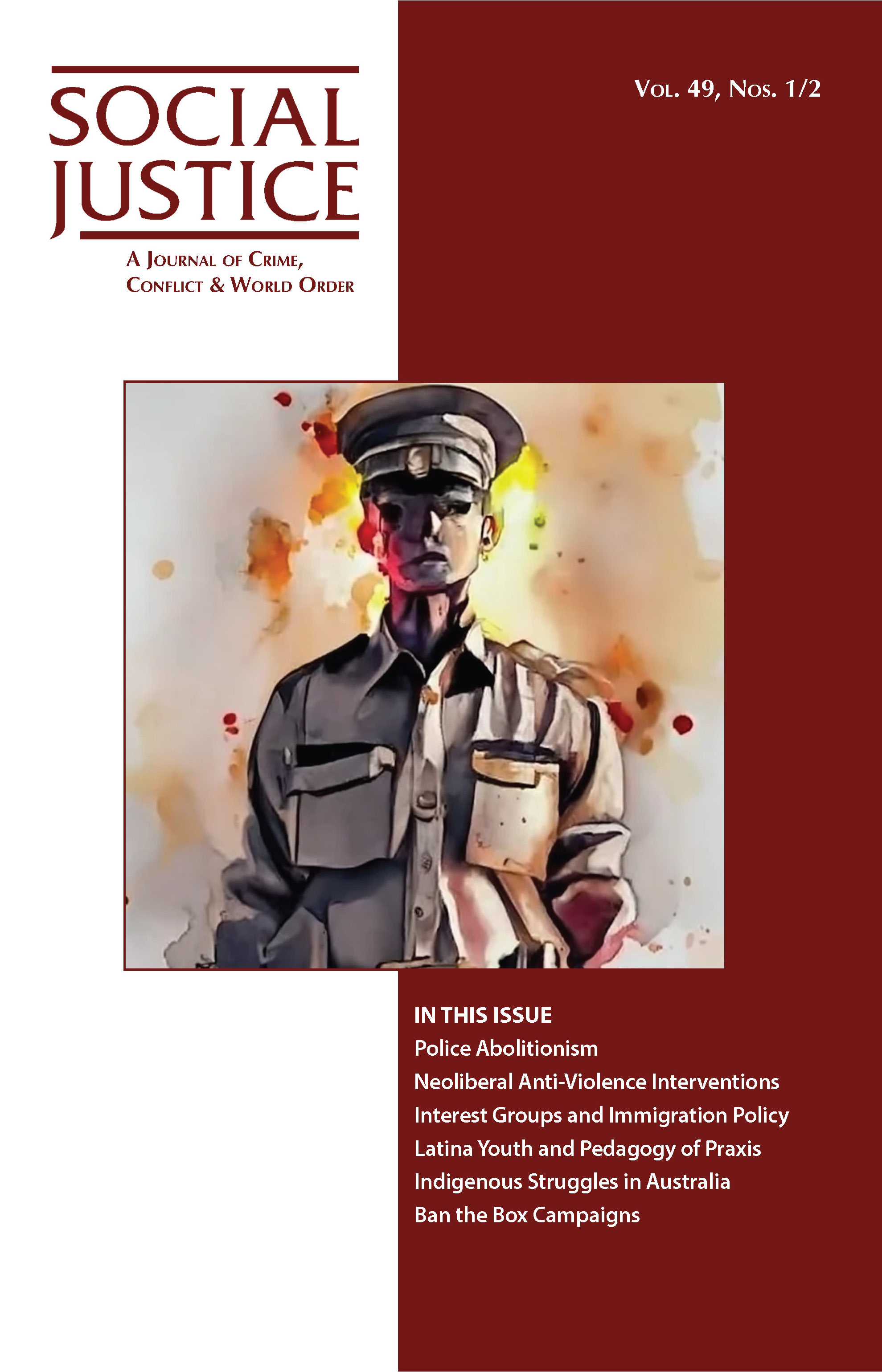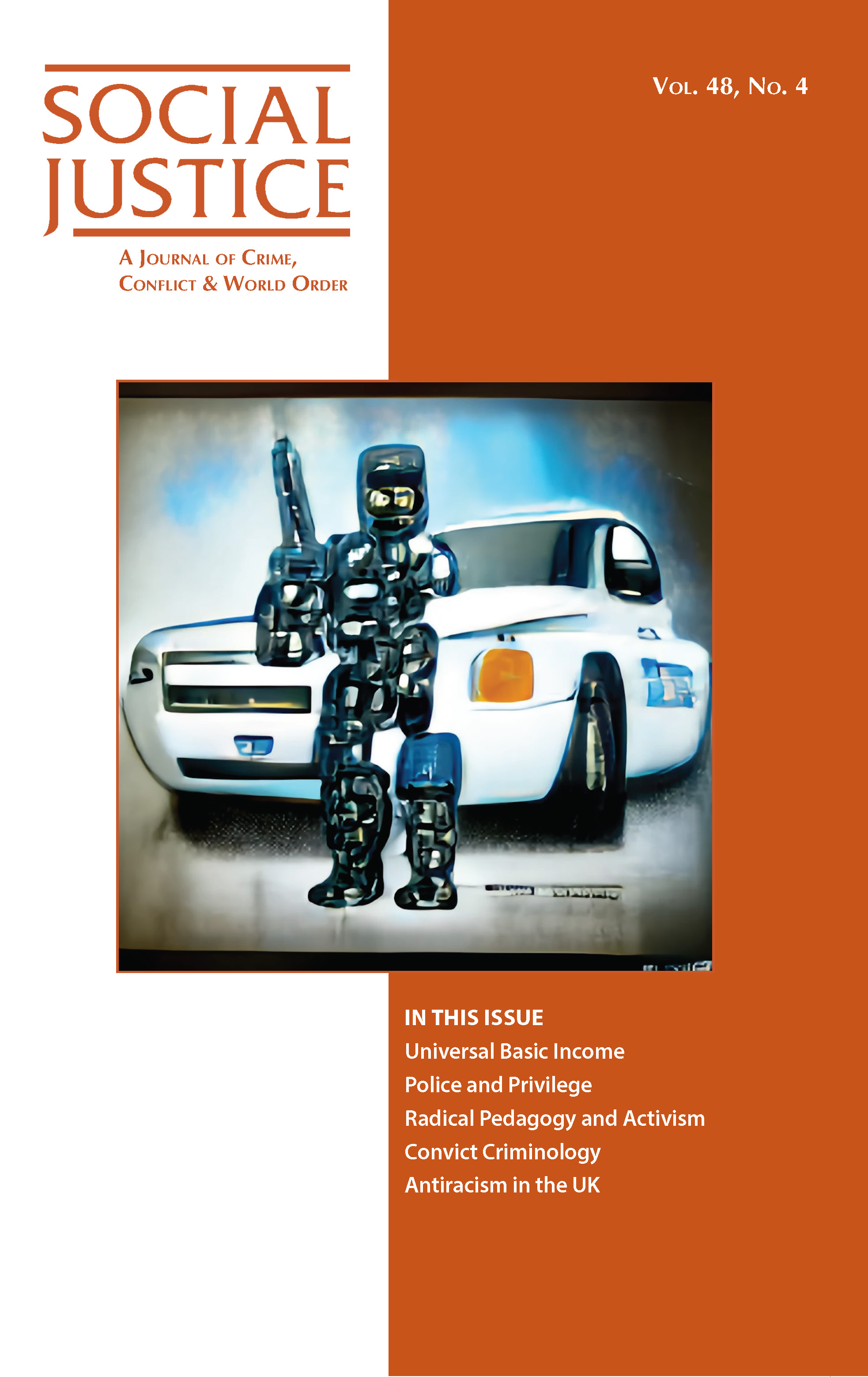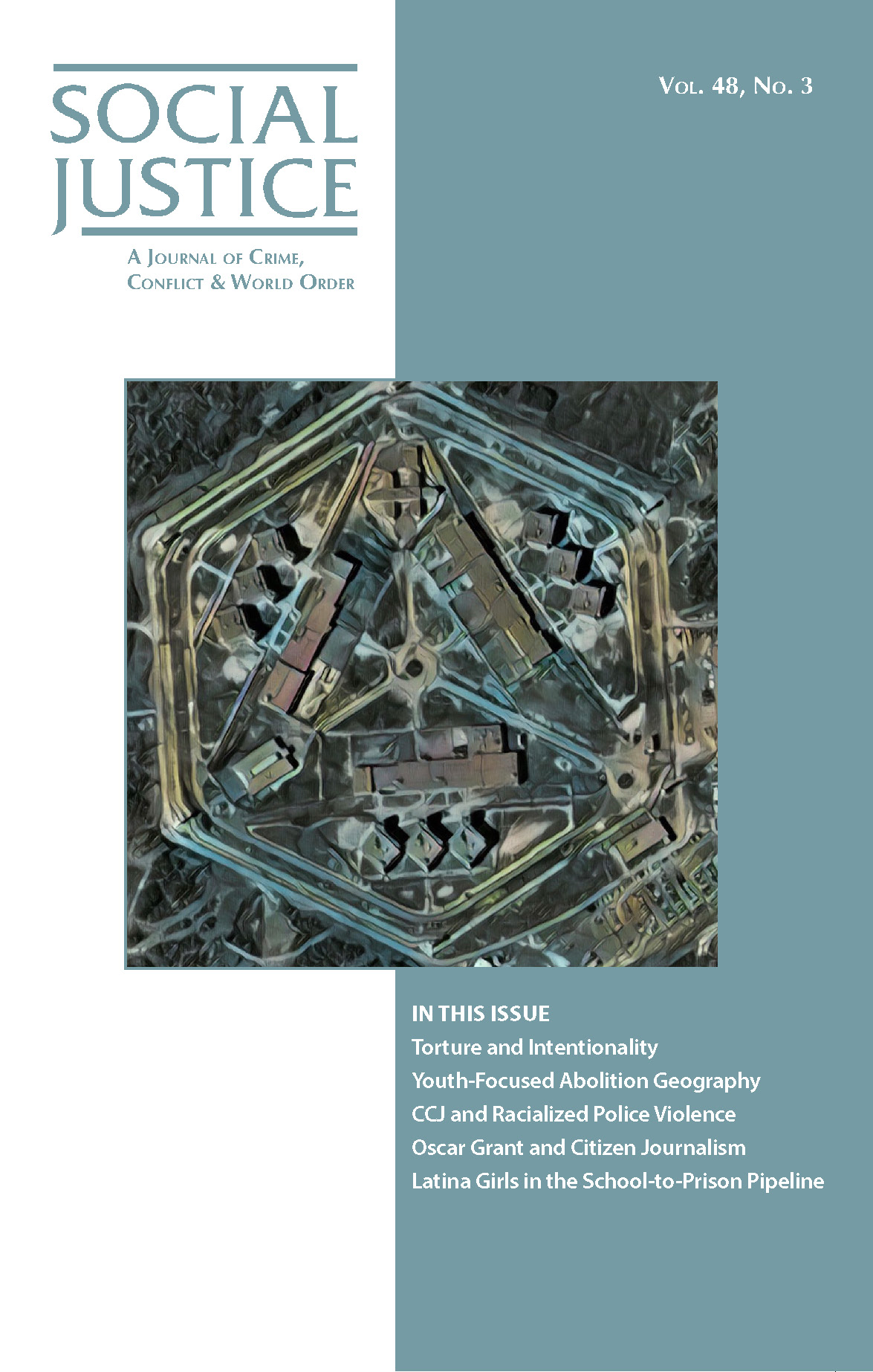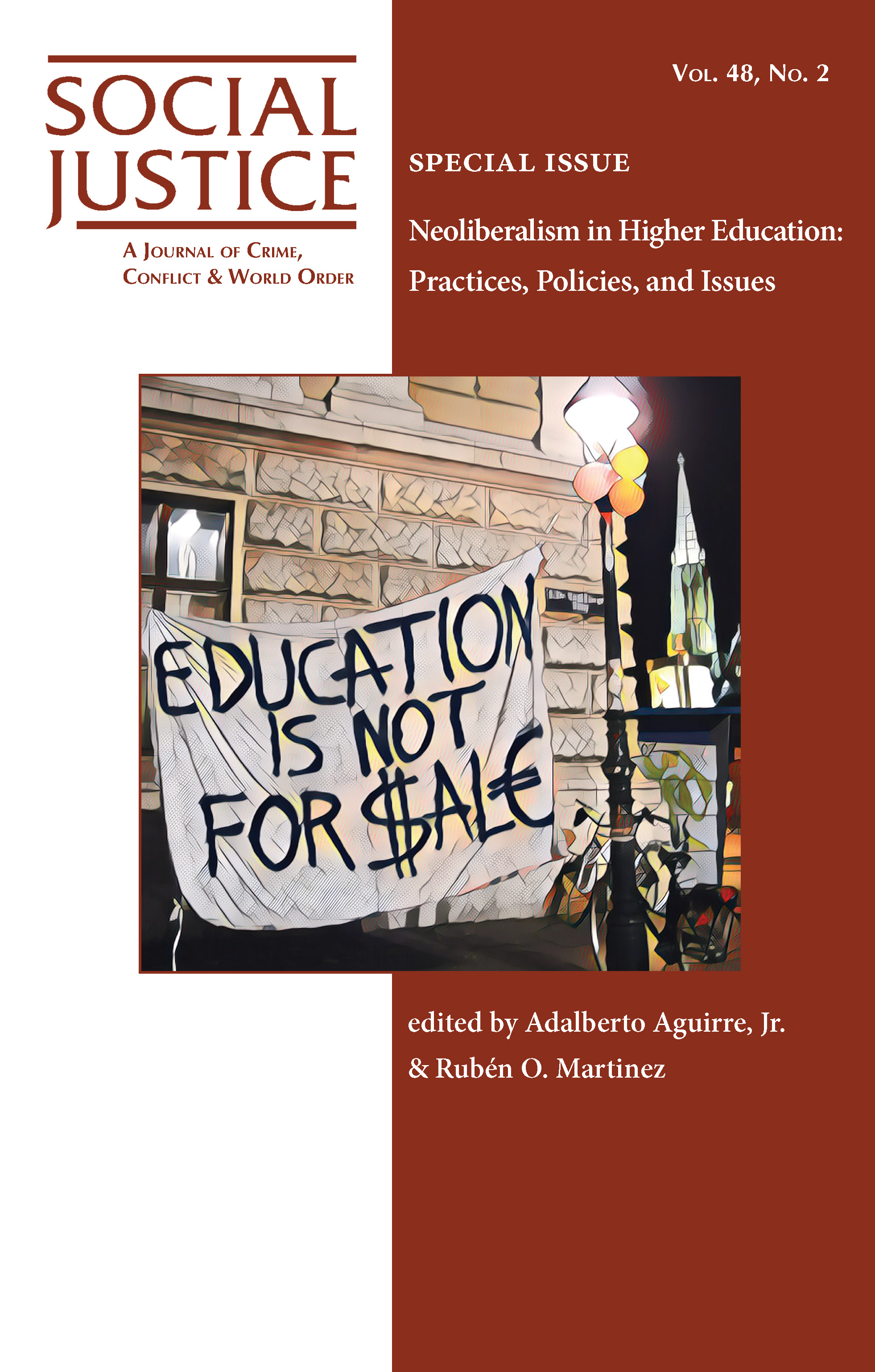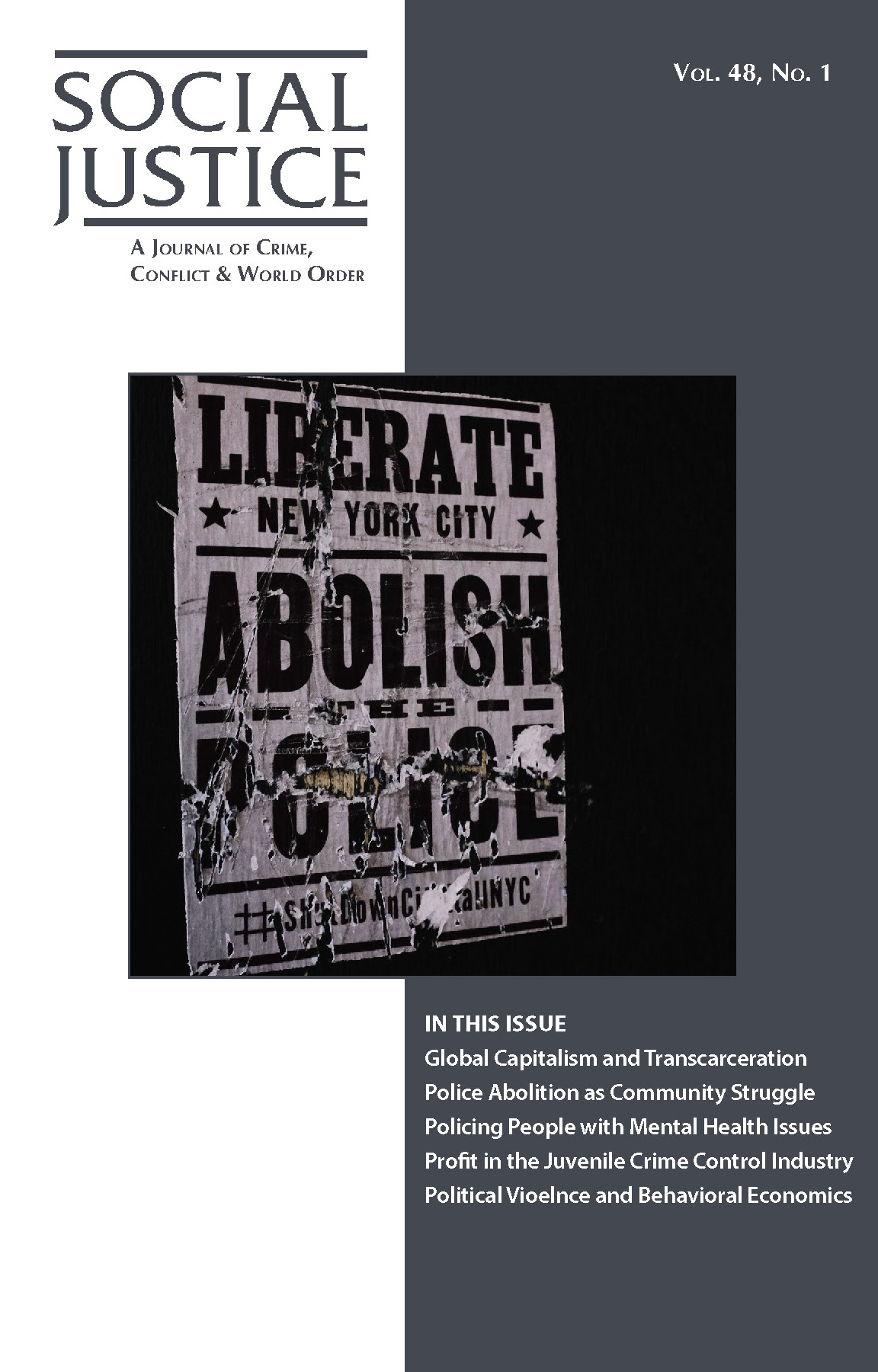CURRENT ISSUES
Vol. 49-4
Seize the Space: Angela Davis, Michel Foucault, and the Meaning of La Bataille
Michael Welch
A Community Vision of Police Abolition: Lessons on Theorizing from Below
Jesse S.G. Wozniak
Self-Harm in Prison and Abolition Feminism: Resisting Resistance Narratives and Framing Self-Harm as Carceral Violence
Kolleen Duley
Abolition as a Verb
Angélica Camacho
BOOK REVIEWS
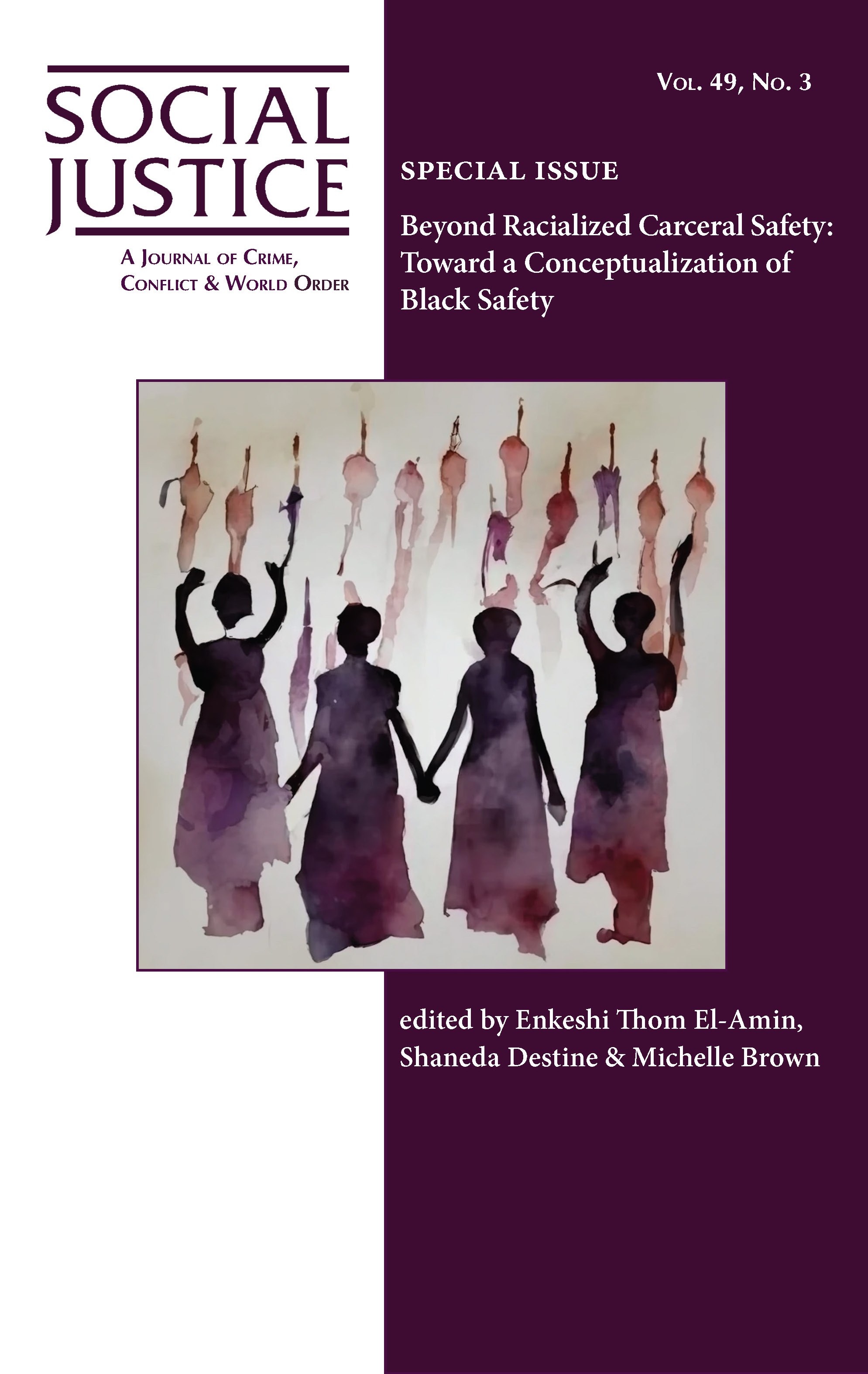 Vol. 49-3
Vol. 49-3
Beyond Racialized Carceral Safety: Toward a Conceptualization of Black Safety
edited by Enkeshi Thom El-Amin, Shaneda Destine & Michelle Brown
The call for safety in the United States routinely insists upon the singular expansion of carceral and police power in the criminal legal system and across al major institutions. This special issue emphasizes another mode of safety, sociality, and being that has arisen against the long history of state violence and white radicalized carceral safety: Black safety.
Eddie Ellis, Credible Messengers, and the Neoliberal Imagination of Anti-Violence
David C. Brotherton
Police Abolitionism: A Marxist Critique
Howard Ryan
Abolitionist Entanglements with Guards
Erica R. Meiners
Uncomfortable Kinship: Gang Experts and Street Outreach Workers in South Los Angeles
Daniel Gascón
The “Keys to the Kingdom”: Interest Groups, Ideologues, and Immigration Policy
Amy Risley
Social Protest as a Liberating Pedagogy of Praxis
Carlos R. Casanova, Julia Silver & Ashley Dominguez
Historical State Crime and Public Criminology as a Catalyst in the Campaign for Indigenous Recognition and Representation in Australia
Paul Bleakley
PREVIOUS ISSUES
Universal Basic Income, Social Justice, and Marginality
Anthony J. Knowles
Police as Supercitizens
Brittany Arsiniega & Matthew Guariglia
The School of the Americas, Radical Pedagogy, and Sacrificial Activism
Ralph Armbruster Sandoval
The Growth of Convict Criminology 2.0
Jeffrey Ian Ross & Grant Tietjen
COMMENTARY: The Monitoring Group
Jasbinder S. Nijjar
Entangling Intentionality
Ergün Cakal
Carving the Terrain of Freedom
Kaitlyn J. Selman
Violent Symbiosis
Ryan Phillips, Brian Pitman & Stephen T. Young
“Oscar Did Not Die in Vain”
César “che” Rodríguez
Unraveling the School Punitive Web
Andrea Román Alfaro & Jerry Flores
Vol. 48-2
Neoliberalism in Higher Education: Practices, Policies, and Issues
edited by Adalberto Aguirre, Jr. & Rubén O. Martinez
The purpose of this issue is to discuss the many characteristics of higher education that subscribe to neoliberal practices. Neoliberal ideology does more than just pursue business principles of efficiency and production at a large scale involving the merger of manufacturing industries and labor. Neoliberal ideology identifies bodies—students, staff, and faculty—as having a purpose in the production of profit for capital expansion.
Articles on:
• Global Capitalism and Transcarceration
• Police Abolition as Community Struggle
• Policing People with Mental Health Issues
• Profit in the Juvenile Crime Control Industry
• Political Violence and Behavioral Economics
FROM THE EDITORS
Our quarterly journal online makes available all of our editorials and tables of contents dating back to 1974. Many of our issues and single articles dating to 1986 can be downloaded in Adobe Acrobat (pdf). Please browse our archives to read the introductions and abstracts for each issue. A strength of our journal is that most issues are thematic, developed by guest editors who are intimately involved with the topic. If you have an idea for a possible special issue of the journal, please contact us. We also publish miscellaneous issues and we welcome individual submissions.
Visit our blog, where we publish original commentaries on current events. If you wish to contribute a post, please contact us.
Educators may order custom classroom readers that students can download from our site. Publishers and copy services wishing to reprint or reproduce this material in any form should contact Social Justice for permissions instructions. We also host an archive of the work of our colleague Paul Takagi.
We also hope you will subscribe to our journal. We strive to keep our prices affordable and rely on our subscribers to remain strong and independent.
• • •


